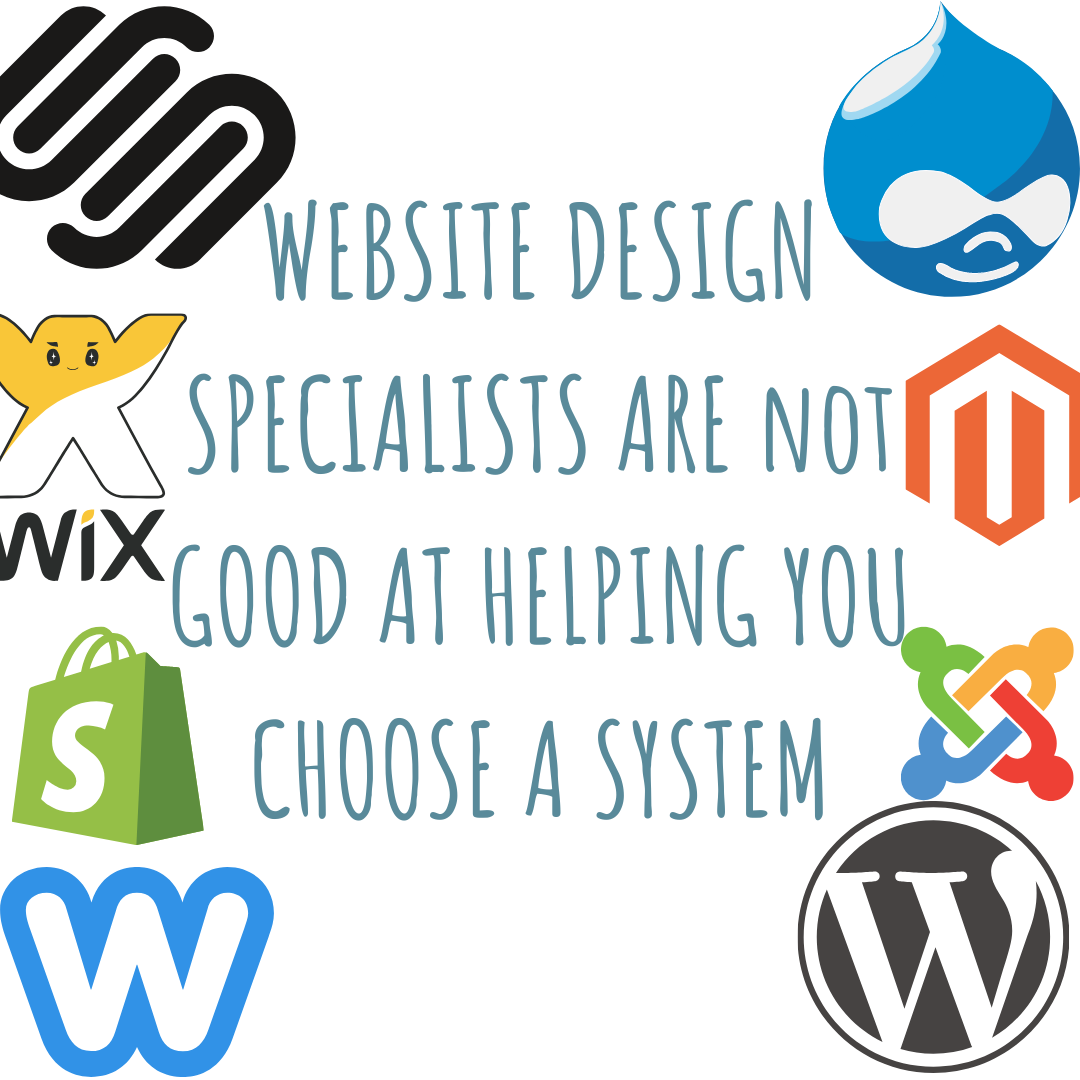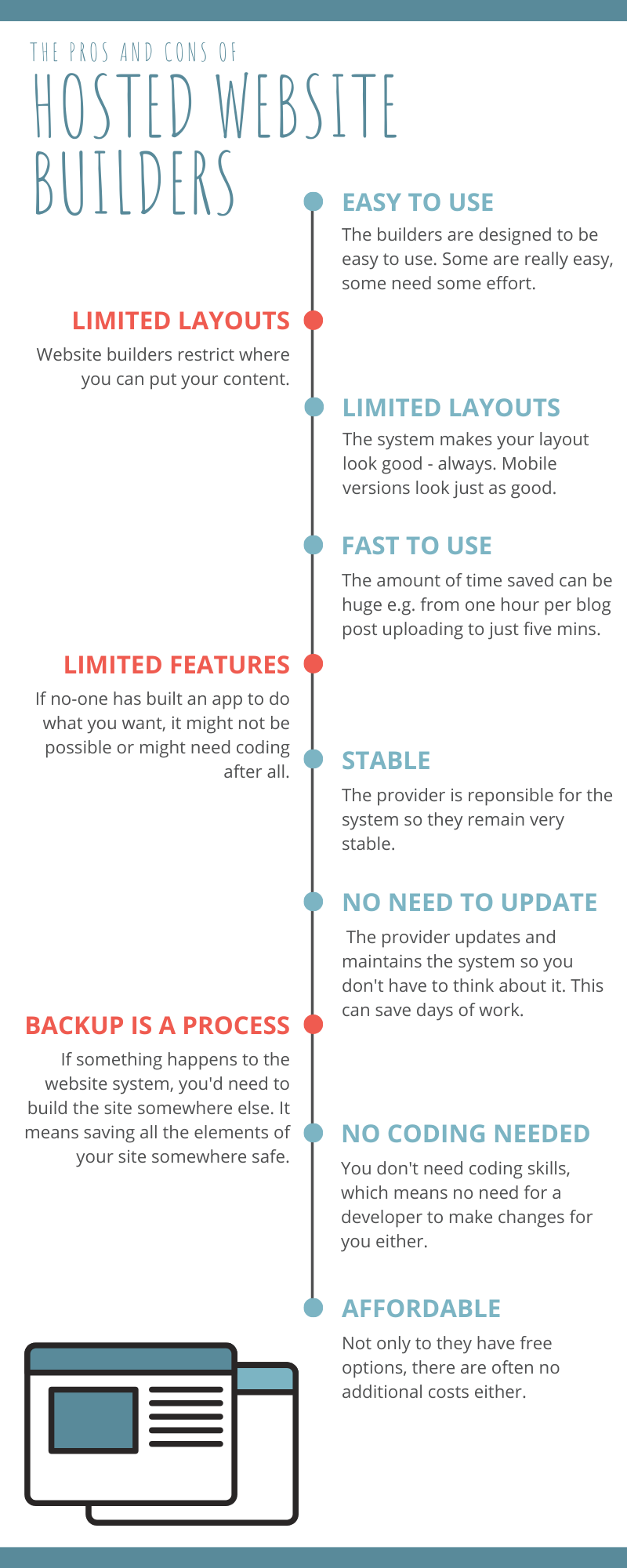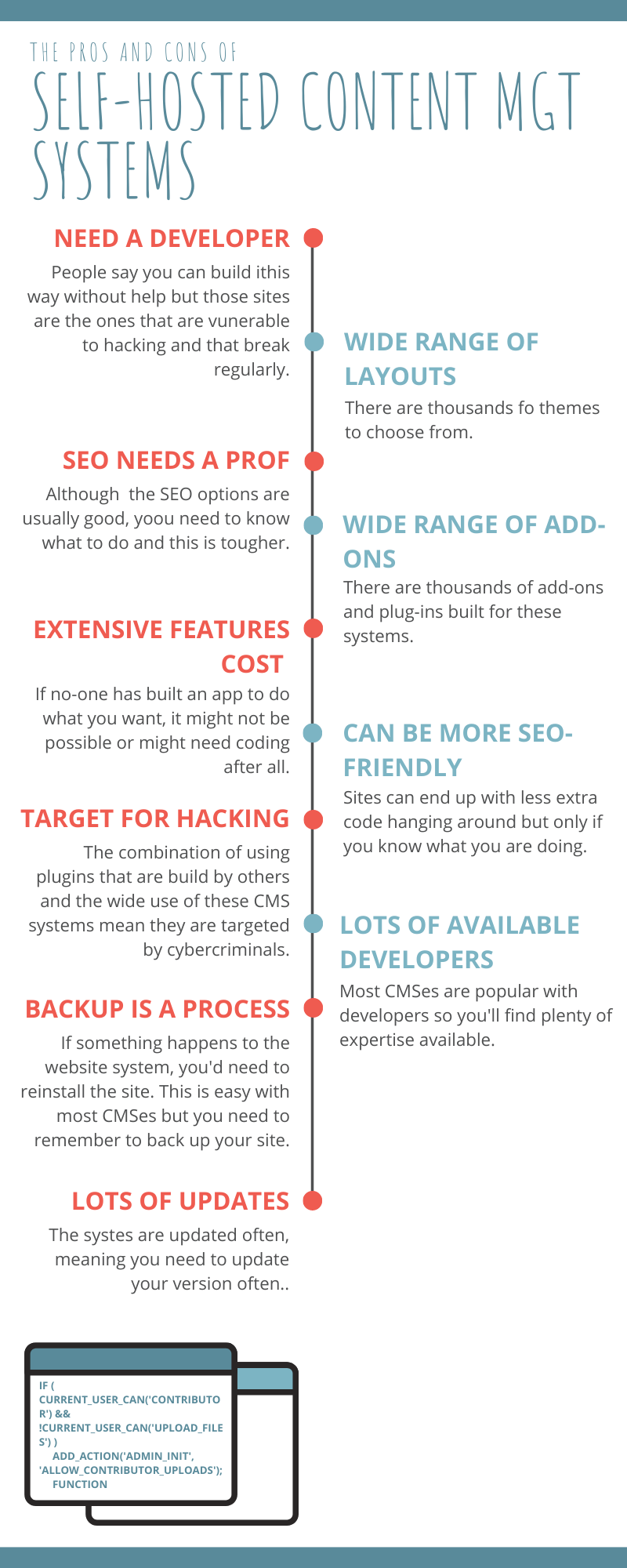|
There are many systems for building websites in and picking the right one starts with working out what you need and want:
Choosing from the range of options There are two main groups of website building systems that are best for your size and type of business: 1. Hosted website builders These are the easiest to use and are the most stable options for building your website. You may have heard of Wix, Weebly, SquareSpace and One. These are all hosted website builders. There are hosted website builders that specialise in online shopping websites. These include Shopify and Tictail. If your business model is membership and training-based, there are hosted website builders that provide you with all you need to manage members and password-protected areas and online courses. Kajabi is a well-liked option but you see that the pricing reflects how powerful it is. Some of the standard systems, like Wix and Weebly can handle basic versions of membership sites and training online and they are far cheaper. 2. Self-hosted content management systems These over a lot more opportunity for custom development - programming your own site elements - but this comes at a price. These really require help from a developer who specialising in the particular system. They need hosting somewhere and they need protecting. Security risks are higher, especially if you don't update the software immediately as a new update comes through. The most well-known self-hosted CMS is Wordpress. It isn't alone, there is Drupal and Joomla, Magento and a whole lot more. There are also custom coded sites which big companies with complex sites and a high level of security use. How to choose the best one for your business If you need a new website or to rebuild a current one and want some advice, get in touch with us. We also offer a comprehensive review of your website, including user experience (what it is like for a stranger to use your site), design and content, plus all the above SEO elements. Included are specific tips under each section and the information you need to see and work on your on-page SEO.
It costs just 1100 kr + moms - Contact us to book yours You have some email addresses of potential customers that you found on the internet. They are called 'cold' contacts because you've never had any conversations or communication with them before. Brrrrr.
A few fine chaps have signed up for your newsletter on your website. Those clever people have now 'opted-in' and have given permission for you to email them as much as you like (remember they'll take it back if you annoy them). Here's the clever bit. If those subscribers then click on a link you have sent them to confirm they've subscribed, they are then 'double opted-in' and you can be sure they want to hear lots from you. The big conundrum for us marketing folk is whether that email you send them to confirm actually annoys them. That, we don't want. We think it can be better to encourage some sort of action, like clicking a link through to your website, so we can see they are interested. A softer approach. It does, of course, depend on the industry and business. Everyone is different. Google updates its way of searching the web so often that it is almost impossible to keep up with it.
One key point we picked up recently is that the search engine needs to see at that at least 60% of the content on your website is unique - you write it yourself and it isn't repeated anywhere else on the web. This is harder to do than you might imagine for businesses that sell products with standard descriptions for example. A word from the wise (wiser?!) - don't be tempted to repost blog content or even page content to your own site without writing about it in your own words and checking you haven't fallen under the 60% boundary. Sites that are known as 'content farms' - those that collect text and images from all over the web and feature them, uch as news portals, are bad news as far as Google is concerned. If a content farm is pulling your information, Google will penalise you for it. |
Categories
All
Archives
May 2024
|
|
© 2024 My Own Marketing Team
|





 RSS Feed
RSS Feed